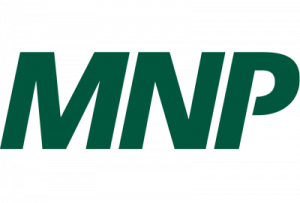With the release of the 2017 – 2018 Saskatchewan budget this past spring, there’s been a seismic shift in how the Saskatchewan government treats services from a Provincial Sales Tax (PST) point of view.
The budget increased the PST rate on March 23, 2017 from 5 percent to 6 percent. A week later, on April 1, the government altered the list of services that are PST taxable and PST exempt. Both changes resulted in increased costs to oilfield service companies – and their customers.
In this new and more complex taxation world, it’s important for oilfield service operations and contractors doing business in Saskatchewan to gain a clear understanding of how the new rules will affect them. With increased grey areas, operators have to understand how the PST applies to their business, both on the revenue side and on the purchase side. For the first time, many oilfield service companies and contractors will now have to charge the PST on their services and they need to be clear on how to go about doing that.
Determining New Costs
Among the services that are now treated as PST taxable, are services to real property – ‘bricks and mortar’- a building or anything permanently attached to land or a building, for example an oil or gas well. This will directly impact oilfield services companies and contractors. These costs are applicable whether you are a service contractor in Saskatchewan or a non-resident contractor coming in to Saskatchewan to work.
To figure out the costs, you will need to understand what is considered a service to real property, what is considered exempt and why. And you will need to consider ‘What does that mean to me and to those who are buying my services?’
Under the old rules, the PST only applied to the cost of purchasing materials. Under the new rules, businesses in most cases are no longer required to pay the PST on materials; however, their entire fee to their customer is now subject to PST. This means that oil and gas producers, as well as their customers, will end up paying more indirectly due to the higher PST cost going into the system. The anticipated increase is the reason why many oil and gas producers have begun asking oilfield services companies to make sure everything they’re invoicing for is actually taxable for the PST.
No More PST-Free Rigs
Another significant change for the oilfield services sector is the elimination of the remission order for permanently mounted oil and gas industry equipment – used to explore for or develop oil and gas – which exempted companies from having to pay the PST on the purchase of this type of equipment. The 2017 – 2018 budget removed the ability to buy this type of equipment PST-free. For example, when purchasing a drilling rig, a company must now pay 6 percent PST on that equipment whereas before, the PST was relieved. As a result, companies now face higher operating costs, which must be factored in to their fees.
With an expected upswing in oilfield activity, it’s a good idea to address the PST issue now. The Petroleum Services Association of Canada (PSAC) has updated its forecasted number of wells to be drilled in Canada (rig released) in 2017 from 6,680 to 7,200 wells drilled; while the Canadian Association of Oilwell Drilling Contractors’ (CAODC) revised 2017 drilling forecast projects that 6,842 wells will be drilled in 2017, an increase of 2,177 from its original forecast.
However, without a plan in place taking the new PST rules into account, the increased activity might not translate into increased revenue.
Be Prepared to be Audited
In light of the new rules, you’ll want to ensure you have all of the necessary changes in place sooner rather than later. And because no two businesses are exactly the same, it’s important to seek out advice early on, while there is still some tolerance for error.
To better understand how the PST will affect you and your company, it’s important to stay in touch with the Ministry of Finance, which is there to help businesses understand and interpret the new rules (and the rules will evolve over time). It’s also a good idea to get any advice from the ministry in writing to support their answer.
To bring additional clarity to the Saskatchewan PST changes, MNP has put together a new guide, Changes to the Oil and Gas Industry Explained. The guide will be available this fall through your MNP General Partner.
Everyone can expect to eventually be audited for the PST. Under an audit, you will have an assessment against you if your calculations are not correct. Be aware that making one error also means there’s a possibility of making multiple similar errors and any errors will compound the amount of tax owing to the province. This would also bring with it penalty and interest costs charged for that error.
Contact MNP’s Oilfield Services Team
MNP understands the oilfield services industry – its drivers, challenges and opportunities. We are proud to provide insight into the latest industry news and trends in our newsletter, issued in association with JuneWarren-Nickle’s Energy Group.
For more information on MNP’s OFS services, contact a member of our team:
Jeremy Rondeau, Vice President, at 306.773.8375 or jeremy.rondeau@mnp.ca
Share This:





 CDN NEWS |
CDN NEWS |  US NEWS
US NEWS 

































Canada’s Advantage as the World’s Demand for Plastic Continues to Grow